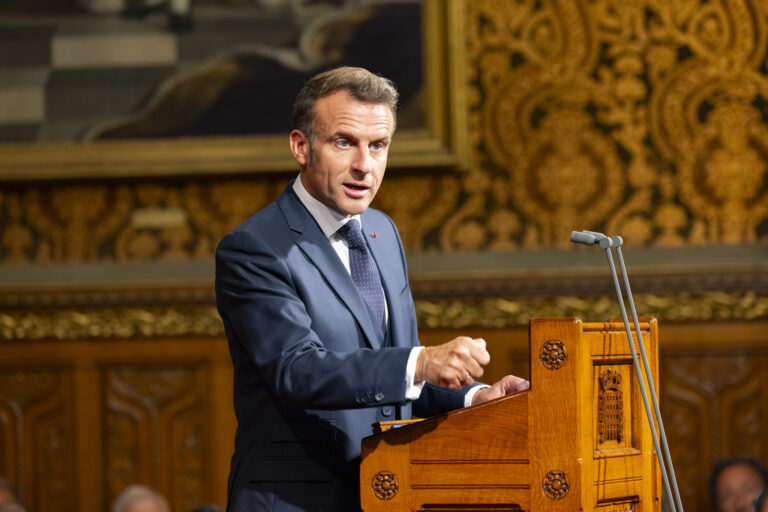Reading the title of Sarah Jones’ article, you would think that it would be about how the fear of climate change is discouraging young couples from having children. After all, that’s a common enough topic these days. In fact, we here at PRI released an article on this exact topic recently.
But no. “Wanting a Child at the End of the World” turned out to be a full-on attack on pro-natalism.
Sarah Jones went after every aspect of life, marriage, and family that she could think of. From her unnecessary mention of being against Roe’s overturn to her support of IVF—despite not wanting to go through it herself—to her critique of Restorative Reproductive Medicine as “unscientific bullshit,” the writer makes her political position clear: She detests pro-lifers, especially those who encourage others to get married, start a family, and build a legacy.
People like Charlie Kirk, for example.
I disagree with almost everything she says. There are at least a dozen statements that I take issue with.
But here’s the strange thing. If you read between the lines you will find that, underneath all the anti-natal, anti-baby, anti-family, anti-life posturing, at the very heart of the article, is a woman who wants to be a mother, and is fundamentally pro-natalist herself.
Consider that she claims to believe that marriage and motherhood are traps for women–the standard feminist position–but then goes on to admit that she willingly entered into both. Her justification?
“I fell in love with a man who did not want to be a household tyrant and married him. Later I decided that I did want children, but only with him, because with him motherhood would not be a trap.”
So avoid marriage and motherhood at all costs… unless you find a good man whom you want to marry and have children with.
I hate to break it to her, but almost no one would disagree with her, least of all me.
Who would want to marry a tyrant?
Does Sarah really believe that pro-natalists want women to marry abusive strangers just so they can start popping out babies? Or is she just creating a “straw man” for the sake of argument?
Take it from me that the pro-baby movement is absolutely committed to happy, healthy marriages that result in happy, healthy families–with lots of children. Pro-natalists believe that, in order to have a happy, healthy marriage, young men and women need to find partners who will make good spouses; spouses who will pour themselves heart and soul into their marriage, building a foundation that will stand the test of time.
In fact, the best advice I could give to someone my own age, mid-twenties, would be to find a good person that you would like to spend your life with and marry them. And, once you tie the knot, have children sooner rather than later.
Indoctrinated feminist though she is, Sarah is forced by her own experience to admit that, when you marry a good man, the desire to have children with him naturally follows. Love doesn’t divide, it multiplies.
Modern feminists would rather ignore this natural calculus because it conflicts with their deeply ingrained ideas about female autonomy. Indeed, Western culture itself, with its prioritizing of the needs of self over everything else, mitigates against getting married and having children.
Sarah ultimately found that she wanted children–an idea she had previously rejected–but makes it painfully clear that she wants nothing to do with the pro-natal movement, or with encouraging others to celebrate the joy of bearing and raising children.
She only wanted to have children as an expression of her own will. It’s not even clear from the article if she even took her husband’s feelings into account. She reminds me of a petulant child who doesn’t want to do what she is told, even if it is for their own good. Sarah doesn’t seem to understand that the good of an action is not lessened because you are following the advice of others.
After more than establishing that she is an independent feminist, Sarah herself begins to celebrate the joys of motherhood, although in a curiously negative way:
“A child is not an ideological token, or a replacement for therapy, or a mere extension of her parents. I do not want to have a child in order to make myself feel good or to rescue what’s left of the welfare state. Probably most of us don’t. I like the idea of raising a person.”
Aside from die-hard feminists, I don’t believe anyone has children for the reasons she lists here, least of all those in the pro-natal movement.
I know I didn’t.
I didn’t have a child to create an “extension” of myself or “to make myself feel good.” I didn’t even have a child to rescue our nation’s economy, despite knowing the danger we’re in if the U.S. fertility rate continues to fall.
I had a baby, and will have many more, God-willing, because I love my husband and value motherhood as a vital calling. I can have children for these personal reasons and know at the same time that they will benefit our family, community, and, ultimately, our nation, as well.
My children, and their children after them, will help us rebuild a culture of life.
******
An earlier version of this article was published on the International Youth Coalition blog on September 29, 2025.







